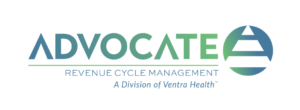In the early days of the pandemic, the Families First Coronavirus Response Act (FFCRA) mandated that Medicaid beneficiaries could not be disenrolled from Medicaid during the pandemic’s public health emergency (PHE). States also received enhanced Federal Medicaid payments in exchange for keeping people enrolled in Medicaid. As a result of this policy, Medicaid, and the Children’s Health Insurance Program (CHIP) added 23 million beneficiaries during the pandemic. When the PHE expired on April 1, 2023, states began the Medicaid redetermination process, meaning that many people who no longer technically qualified for Medicaid would automatically be disenrolled.
HHS originally predicted that during this process, about 15 million people would lose Medicaid coverage. The actual number of people disenrolled has been closer to 18 million as of March 20th. This number is expected to continue to grow substantially, as there are still 35 million eligible redeterminations unreported or still pending. This is largely because the Medicaid redetermination process varies substantially among states—some states are far along in their redetermination process while others started much later.
As a result, many people who have been unenrolled from Medicaid or CHIP coverage are turning to employer-sponsored plans or Affordable Care Act Marketplace plans. However, many are unaware of these health insurance options and are still uninsured. There are pushes to allow flexibility for people to enroll in marketplace plans, as states are offering Special Enrollment Periods (SEP) and premium subsidies for those recently disenrolled from Medicaid due to state redeterminations.
On this front, a major action was taken by CMS this month to extended the deadline for the SEP from July 31st to November 30th, the end of the plan year. This will help ensure that those disenrolled later in the Medicaid unwinding process can still enroll in a Marketplace plan. While this extension only applies to federally run Marketplace coverage, CMS is heavily advising state run programs to follow the federal government’s lead and extend their enrollment period to ensure people who are unexpectedly uninsured can enroll in a new plan.
ADVOCATE will share additional information with clients and friends as it becomes available on this and other Federal Health Policies.
Kirk Reinitz, President
